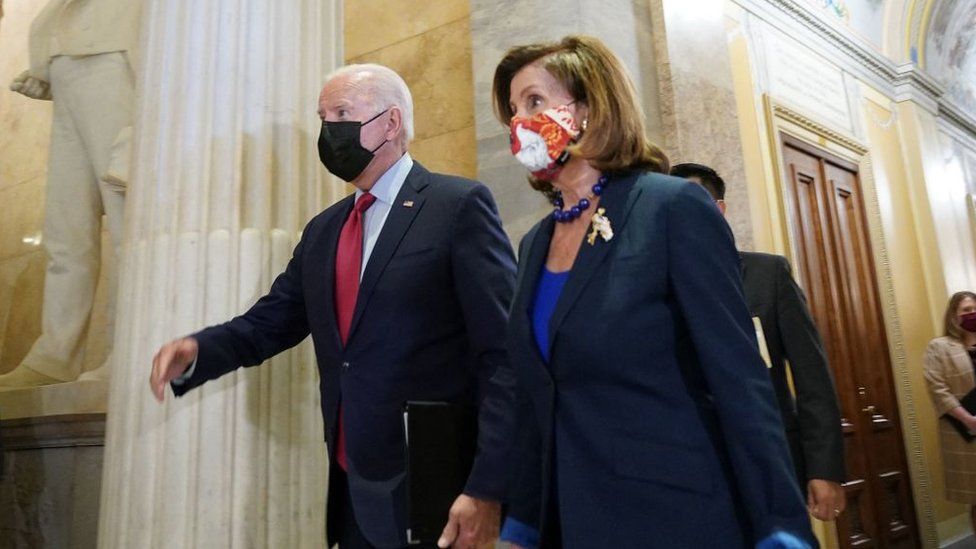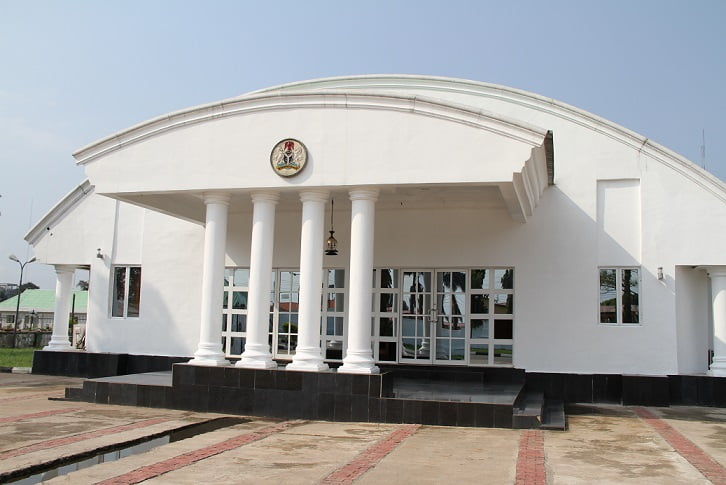Billed as a “once-in-a-generation” spending measure, the infrastructure legislation proposes $550bn in new federal expenditure, over the next eight years, to upgrade highways, roads and bridges, and to modernise city transit systems and passenger rail networks.
The agreement also sets aside funding for clean drinking water, high speed internet, and a nationwide network of electric vehicle charging points.
It is the largest federal investment in the country’s infrastructure for decades.
“Tonight, we took a monumental step forward as a nation,” Mr Biden said in a statement. “Generations from now, people will look back and know this is when America won the economic competition for the 21st Century.”
It will be financed in several ways, including unspent emergency relief funds from the Covid pandemic.
Its passage marks a huge achievement for the Biden administration amid low approval ratings and a defeat for the Democrats in Virginia’s gubernatorial election this week.
Three months ago, 19 Republicans joined with Democrats to approve the legislation in the evenly split Senate, a rare bipartisan feat in an increasingly divided Congress.
On Friday the bill passed the House with support from 13 Republicans, too. But more liberal lawmakers balked at its final version, complaining that key liberal policies had been dropped in exchange for the bipartisan win.
Six Democrats voted against it, including Alexandria Ocasio-Cortez of New York and Ilhan Omar of Minnesota. The group of six – dubbed The Squad – are among the most left-wing and progressive members of the House.

Members of the Congressional Progressive Caucus pledged they would not support the infrastructure bill until they had voted on a separate social welfare bill that allocates $1.75tn for healthcare, education and climate change initiatives.
If passed, it would usher in the biggest expansion of the US safety net in more than 50 years.
Democrats control both chambers of Congress by very slim majorities, so near-universal support would be required for the bill’s passage.
Centrist Democrats continue to object to the size and scope of the sprawling bill. They are insisting on seeing full accounting of its economic impacts.
On Friday House leaders brokered a compromise, insisting on a vote on the infrastructure bill, accompanied by a procedural vote to start debate on the social spending bill. The chamber passed the procedural vote early on Saturday by 221 votes to 213.
Compiling an independent assessment of the social spending bill’s full cost is expected to take at least two weeks, although Democratic leaders have said they remain confident the bill will be passed before the Thanksgiving holiday at the end of November.
BBC







2 Comments